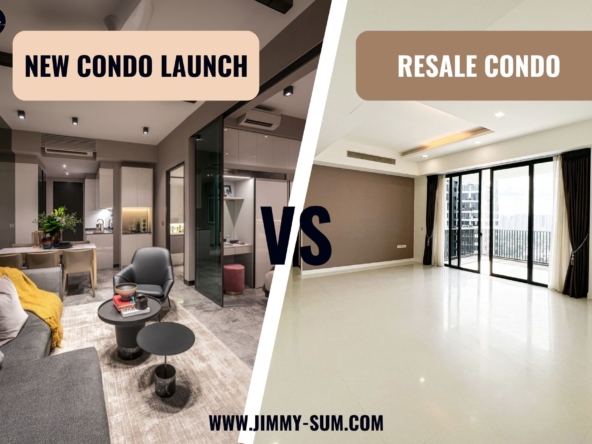Finding a home in Singapore is a brain drainer. With a gamut of options available, we can only imagine how challenging the whole home hunting game can be. And out of all the available options, executive condos can be one option that you can really explore.
From a fully-functional gym to a swimming pool, from beautiful design to having an option to throw a BBQ party, executive condos in Singapore are selling like hotcakes. One research suggests that most Singaporeans prefer to live in an executive condo in Singapore rather than landed property, primarily because of the host of amenities an executive condo provides homeowners with.
So, if you are also thinking about opting for an executive condominium new launch, you have come to the right place. Through this guide, you will be able to understand and decide whether buying executive condos is the right choice for you. Read on to find out everything about executive condominiums, who is eligible to apply, and how to find one.
What is an Executive Condominium?
Executive Condos, otherwise known as EC, are basically sandwich flats. They are designed for home-seekers who don’t want to invest their income on a private condo because of budget issues and want something better than an HDB flat.
So, executive condominiums in Singapore are essentially a public-private housing option. Why public-private? Well, that is because such housing properties are considered public housing when they are sold for the first time to a buyer, and once ten years are completed, they become private.
Executive condos are no less than private condos when it comes to amenities. You will find clubhouses, gyms, swimming pools, parks, tennis courts, security, etc.
Eligibility for Executive Condo
The eligibility criteria to apply for an EC are different from private condos. Private condos are available for anyone who has the financial capability to own one. However, you need to meet some eligibility requirements when it comes to executive condos. And the eligibility for executive condo requirements is the same as applying for an HDB flat.
So, you will have to qualify for one of the schemes mentioned below:
- Joint Singles Scheme
- Public Scheme
- Orphans Scheme
- Fiancé/Fiancée Scheme
Now comes the main part “who can buy an executive condo?” To apply for any of the schemes, one of the applicants has to be a Singapore citizen. Moreover, one of the applicants has to be 21 years or older. In case you want to go for the Joint Singles Scheme, then the mandatory requirement is that one of you must be 35 years or older.
The executive condo income ceiling to apply for an EC, at present, is S$16,000 or below. So, if the co-applicant and you earn more than S$16,000 together, unfortunately, you won’t be able to apply for one.
Also, you must not own any property locally or overseas. And if you do, you have to get rid of it within the final 30 months. If you have purchased a DBSS/BTO/EC directly from HDB before and will like to apply for an EC as a second-timer, you will need to pay for resale levy for your first flat.
CPF Grants for Executive Condo
Buying a home is never easy, so there are a few CPF grants for an executive condo to make your purchase more affordable. To become eligible for the CPF housing grants for executive condo, one of the applicants must be a first-time applicant and a Singaporean citizen. Plus, the combined income ceiling of both applicants must not be beyond S$12,000.
There are two grants:
Family Grant
Half-Housing Grant
For a family grant, here is how much you can get:
| Average monthly gross income of applicants | For Singaporean citizen | For Singaporean citizen and Singaporean permanent resident |
| S$10,000 or lower | S$30,000 | S$20,000 |
| S$10,001 to $11,000 | S$20,000 | S$10,000 |
| S$11,001 to $12,000 | S$10,000 | Not eligible |
| S$12,001 to S$14,000 | Not eligible | Not eligible |
For half-sharing grant, here is how much you can get:
| Average monthly gross income of applicants | Half-Housing Grant |
| S$10,000 or lower | S$15,000 |
| S$10,001 to S$11,000 | S$10,000 |
| S$11,001 to S$12,000 | S$5,000 |
| S$12001 to S$14,000 | Not eligible |
Executive Condo Downpayment
To apply for EC, it is apparent that you would like to apply for a loan. However, what is important to note is that you can’t apply for HDB loans. So, the only option left is to apply for a loan from a financial institution or a bank.
A bank will provide you with 75% of the property price as the loan amount. This means that the remaining 25% of the amount has to be paid as an executive condo downpayment. You have to pay 5% of the 25% in cash, and the rest of the 20% can be paid as cash and CPF together. To explain it better, let’s assume that you are buying an EC worth S$1 million, so the cash amount that you need to pay will be S$50,000.
You must be ready to bear the interest rate, which the bank will apply for the loan, and the rate can fluctuate. You will have to consider for TDSR, Total Debt Servicing Ratio
where the debt repayments (total), which include student loans, credit card bills, and car loans, can’t exceed 60% of the monthly income.
The Process You Need to Follow to Buy an Executive Condo
You must be wondering how to buy an executive condo in Singapore. By following the proper process, your buying journey for an EC will become seamless. Here are the steps that you need to follow:
Step 1: Take Time to Evaluate the EC Projects and Explore Them
You will come across multiple EC projects, so the first thing you need to do is research all the EC projects that are close to the vicinity, and you are interested in. Take a look at them and find out about the location, amenities, and anything else you want to know about. The best thing to do would be to personally visit the site to get an overview. For example, do you like the neighbourhood? What about recreational centres, shopping centers, etc.
Step 2: Work on Your Application and Submit it
Once you are happy with the EC project and are sure about it, you need to fill out the application form and submit it. You can submit it physically (if the developer allows) or online. Next comes the developer’s role, where they will review your application.
They will do this to check whether you are eligible to apply for the unit, and this will be done before providing you with a ballot number. The developer will also give an appointment date if they find you eligible to confirm the EC unit.
Step 3: Get ready to Book You Executive Condo!
If everything goes well and your application is approved, you will be asked to visit the site and pick the EC unit of your choice. If you don’t find the units worth your money, you can always withdraw your application.
Let’s assume that you find a unit worthwhile; in this scenario, you will be asked to sign an OTP, an Option to Purchase agreement. OTP is essentially a contract, which you need to sign to reserve an EC unit. And when you do that, you will be asked to deposit a 5% fee in cash, as stated above.
Next up is HDB. HDB will gradually check your application. Please note that HDB may take up to 4 weeks for the review process. And at this stage, if you want, you can go ahead and submit the CPF housing grant application, in case it is applicable.
Step 4: Apply for a Bank Loan
Buying a home is never easy, and it is a matter of money. Since you will be investing a good amount of money in an EC unit, we recommend exploring some bank loan options. You need to hire a conveyancing lawyer and get an LO, Letter of Offer. This will allow you to take care of the admin matters. You will be asked to submit the OTP agreement as well.
Step 5: Pay Stamp Duties and Sign on Sales and Purchase Agreement
If you get the good news that HDB has approved your application, you can sign the S&P agreement (Sales and Purchase agreement). Don’t worry; the agreement paper will be sent out to you after the approval and within three weeks. You will be asked to pay the rest of the 15% down payment along with BSD by this time.
Along with that, please note that you will have to take care of 1 to 3% of stamp and legal fees. And this you will have to pay within nine weeks. You can pay via cash or CPF.
Step 6: Get Your Keys!
Finally, after a couple of years, you will be all set to grab the keys to your new home! Go on and plan the interiors and design your house to make it your home!
What is the Difference Between an Exec Condo vs. Private Condo?
Even though executive condos sound like a lucrative deal, it is always better to have a clear picture of whether EC is a good option for you or not. To help you understand executive condo vs. private condo features better, read below:
Price: So, executive condos rate will be higher than HDB flats but cheaper than private condos when it comes to price.
Lease: In terms of a lease, an executive condo only has a lease of 99 years, and for a private condo, it can have a lease of 99 years, 999 years and freehold status.
Public or Private: Executive condos remain public housing property for the first ten years and become private once you clear the ten years. But private condos remain private from the beginning.
Singles: Singles can easily buy a private condo. But when it comes to an EC, you have to be a single who is 35 years and older or a single purchasing with another single.
Occupancy Period: The minimum occupancy period for an EC is five years, but there is no such rule for private condos.
Income Ceiling: To buy an EC, your income ceiling can’t exceed S$16,000, whereas to buy a private condo, there is no income ceiling restriction.
CPF Grants: In terms of CPF grants, you can apply for one if you are looking for an EC, but you must be a first-time applicant. But when it comes to private condos, no CPF grant is provided.
Locations: Executive condos are usually located in the outskirts and quite away from MRT stations. Private condos are typically built close to MRT stations, but you will come across a few not built close to MRT stations.
Wrapping Up
If you are comfortable staying a bit away from MRT stations and want good amenities, executive condos are definitely the one to go for. However, we will recommend doing some research before you apply because, in some cases, a private condo or an HDB flat could be an ideal choice.
But if all you want is facilities and the convenience that a condominium provides, then yes, EC is undoubtedly a far better option. Moreover, EC becomes private once it crosses the ten years cap and can provide you with better value in the future.
We hope this guide will help you make an informed decision! However, if you need some help on this, do let me know.




